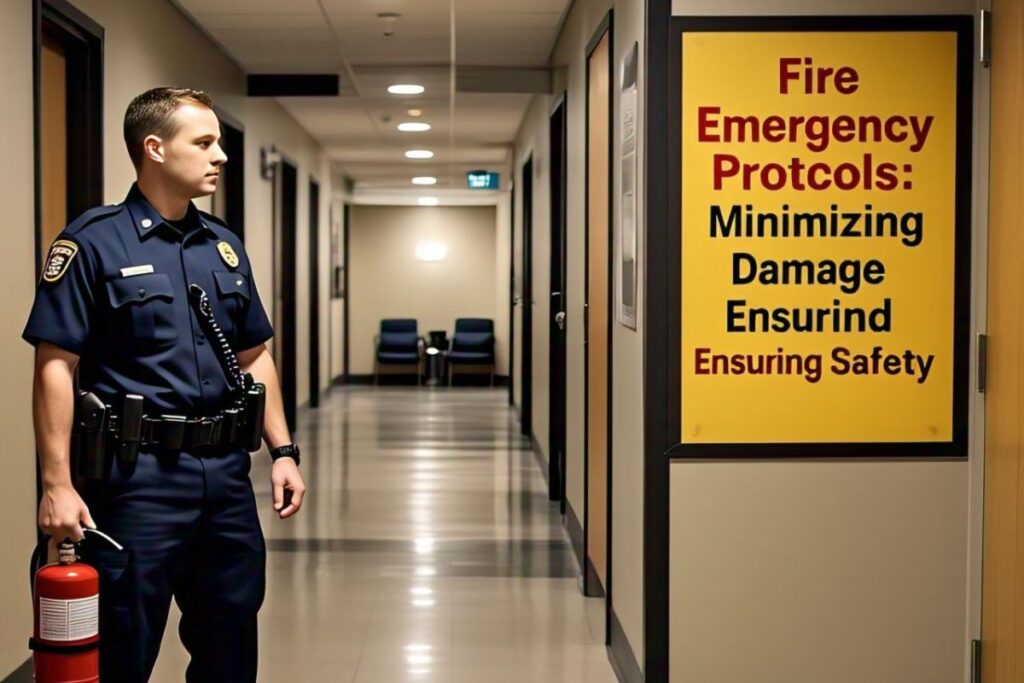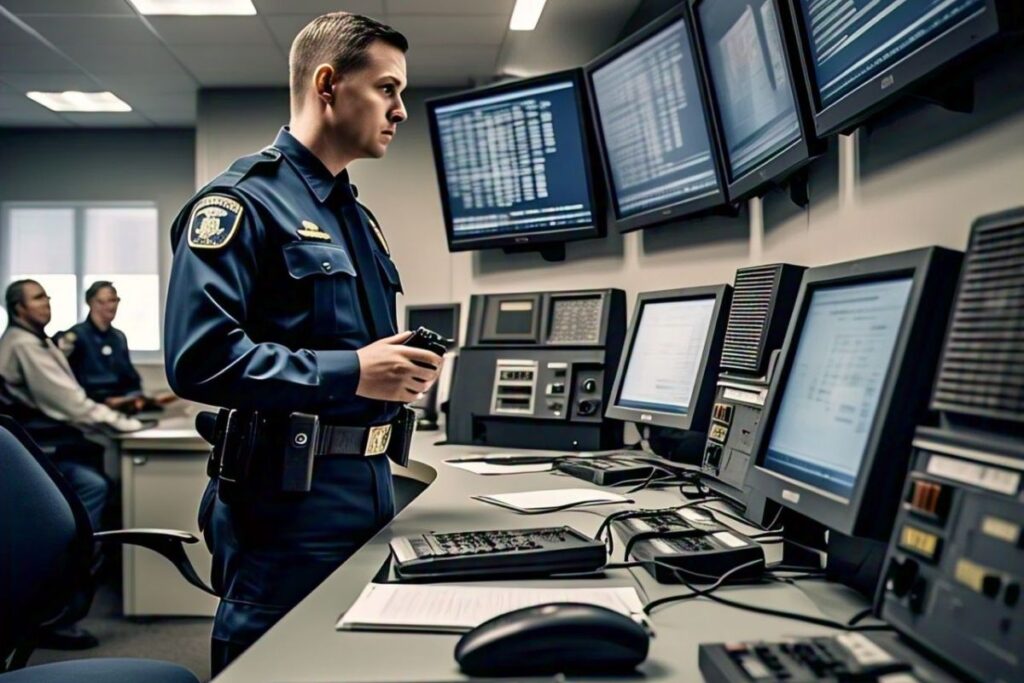Emergency Response Protocols Every Security Guard Should Know
Security guards are often the first to respond in emergency situations, acting quickly to manage chaos, protect individuals, and secure property. Knowing emergency response protocols enables guards to act decisively and appropriately under high-pressure conditions, ensuring public safety and effective crisis management. This guide explores key emergency response protocols, offering insights every security guard should master to handle any emergency professionally.

Understanding the Variety of Emergencies Security Guards Face
Security guards encounter diverse emergency situations, including fire hazards, medical incidents, security breaches, and natural disasters. Each type of emergency demands a unique response approach, from using fire suppression equipment to providing first aid or coordinating an evacuation. A thorough understanding of these different emergencies allows guards to assess risks, prioritize actions, and effectively guide the people involved to safety. Security guards working in specialized environments, like shopping centers, often face additional responsibilities in crowd management and public safety, making specialized training critical. For more on specialized security services, visit our shopping center security services.

Fire Emergency Protocols: Minimizing Damage and Ensuring Safety
In the event of a fire, a security guard’s primary duty is to ensure the safety of all building occupants by facilitating an organized evacuation and managing initial firefighting efforts if trained. Fire emergency protocols include pulling the nearest fire alarm, contacting emergency services, and directing people to safe exits. Guards may use fire extinguishers for small, manageable fires but should leave larger fires to professional firefighters. Evacuating disabled or elderly individuals requires careful planning, as does guiding large crowds to prevent panic. Proper documentation of the incident, including details on how the fire started, can provide valuable insights for future prevention and training.

Responding to Medical Emergencies with Quick and Effective First Aid
Medical emergencies are common and require a prompt and composed response. Guards trained in CPR and basic first aid can assist injured or unwell individuals before paramedics arrive. This process involves assessing the person’s condition, calling emergency services, and providing appropriate first aid. A security guard’s presence and assistance during these critical moments can prevent further complications, offering reassurance and care to those in need. Following up with comprehensive incident reports also aids in tracking recurring issues and improving emergency readiness. For security guards aspiring to broaden their qualifications, training and certifications in Australia provide valuable skills for handling such emergencies.

Handling Intrusion or Security Breach Scenarios
Intrusions or unauthorized access present a serious threat to safety, requiring security guards to stay vigilant and proactive. When detecting suspicious activity, guards should assess the risk, issue warnings if appropriate, and engage backup if the situation escalates. Securing access points, monitoring surveillance footage, and contacting law enforcement may all be necessary steps. Guards working alongside K-9 units may also benefit from enhanced detection capabilities, particularly in larger facilities or areas with high-security requirements. The role of K-9 units is invaluable for identifying intruders, and for more insight, refer to our article on K-9 units in security guard services.

Natural Disasters: Protocols for Crisis Management
Natural disasters such as earthquakes, floods, or severe weather events often create chaotic environments, placing high demands on security personnel. Protocols for natural disasters include guiding occupants to designated safe zones, coordinating with facility management on emergency supplies, and staying updated on weather alerts. Effective communication ensures that people understand where to go and what actions to take, reducing the potential for panic. Guards should follow detailed safety plans developed in advance and remain adaptable, as natural disasters may cause sudden changes in risk levels. Analyzing past incidents and refining disaster plans allows security teams to improve response effectiveness over time.

Essential Communication Skills During Emergencies
Clear, direct communication is central to an effective emergency response. Security guards must communicate calmly and concisely, whether they are guiding individuals during an evacuation or liaising with emergency services. Using radios and intercoms, guards can keep supervisors updated, coordinate with other staff, and provide necessary information to emergency personnel. Training in effective communication enables guards to control crowds, prevent misinformation, and maintain order. Communication protocols can vary depending on location and team size, making it important for security guards to understand the specific requirements of each role. To explore security career paths that emphasize communication skills, visit our guide on skills and qualifications for private investigators.

Evacuation Procedures for Security Personnel
Evacuations are critical during fires, security breaches, and natural disasters. Security guards must be familiar with building layouts, exits, and safe zones to guide people safely. Evacuation procedures involve clearing high-risk areas, such as stairwells and elevators, and assisting those with mobility challenges. Security guards play a central role in managing crowd flow, preventing panic, and ensuring everyone reaches a secure location. Regular evacuation drills and training enhance guards’ preparedness, reducing response time and minimizing risks. The role of guards in evacuation planning is indispensable for comprehensive crisis management.

Incident Reporting and Post-Emergency Analysis
After every emergency, detailed incident reporting helps document actions taken, challenges faced, and outcomes achieved. A thorough report includes the event timeline, initial assessment, response measures, and any injuries or damages. Security guards should provide clear, factual details that supervisors and authorities can use to improve future protocols. Conducting post-emergency debriefs allows guards and management to discuss response effectiveness, identify areas for improvement, and update emergency plans accordingly. Regular training and review also enhance team skills, promoting continual improvement in emergency response readiness. For those interested in establishing a security guard business that prioritizes high standards of training and accountability, see our resource on establishing a security guard business in Australia.

Legal and Ethical Considerations in Emergency Responses
Security guards must navigate legal boundaries during emergencies, ensuring their actions are within the scope of authority. Overstepping can lead to legal complications or liability for both the guard and the company. Guards should understand when to intervene and when to defer to law enforcement or medical personnel. Familiarity with laws governing self-defense, citizen’s arrest, and property protection is essential. Remaining calm and professional under pressure helps guards make sound, lawful decisions, enhancing public trust and reducing liability.

Importance of Ongoing Training and Preparedness
Emergency response protocols evolve as new threats and technologies emerge. Regular training helps security guards stay current with best practices and increases their confidence in handling diverse scenarios. Simulated emergency drills, knowledge of new equipment, and review of past incidents are all valuable aspects of training. To meet evolving standards, security companies invest in up-to-date certification and specialized training programs. Guards interested in enhancing their skills and adapting to industry changes may find value in reading about the evolution of security guard training and certification in Australia.

Conclusion
Mastering emergency response protocols is fundamental for security guards aiming to protect lives and property effectively. By understanding varied emergency types, developing robust communication skills, and adhering to legal guidelines, guards ensure a professional and reliable presence in any crisis. Ongoing training, documentation, and analysis reinforce these protocols, allowing guards to handle emergencies with expertise and authority. This comprehensive approach not only safeguards individuals and assets but also upholds the professionalism and integrity of the security industry as a whole.

